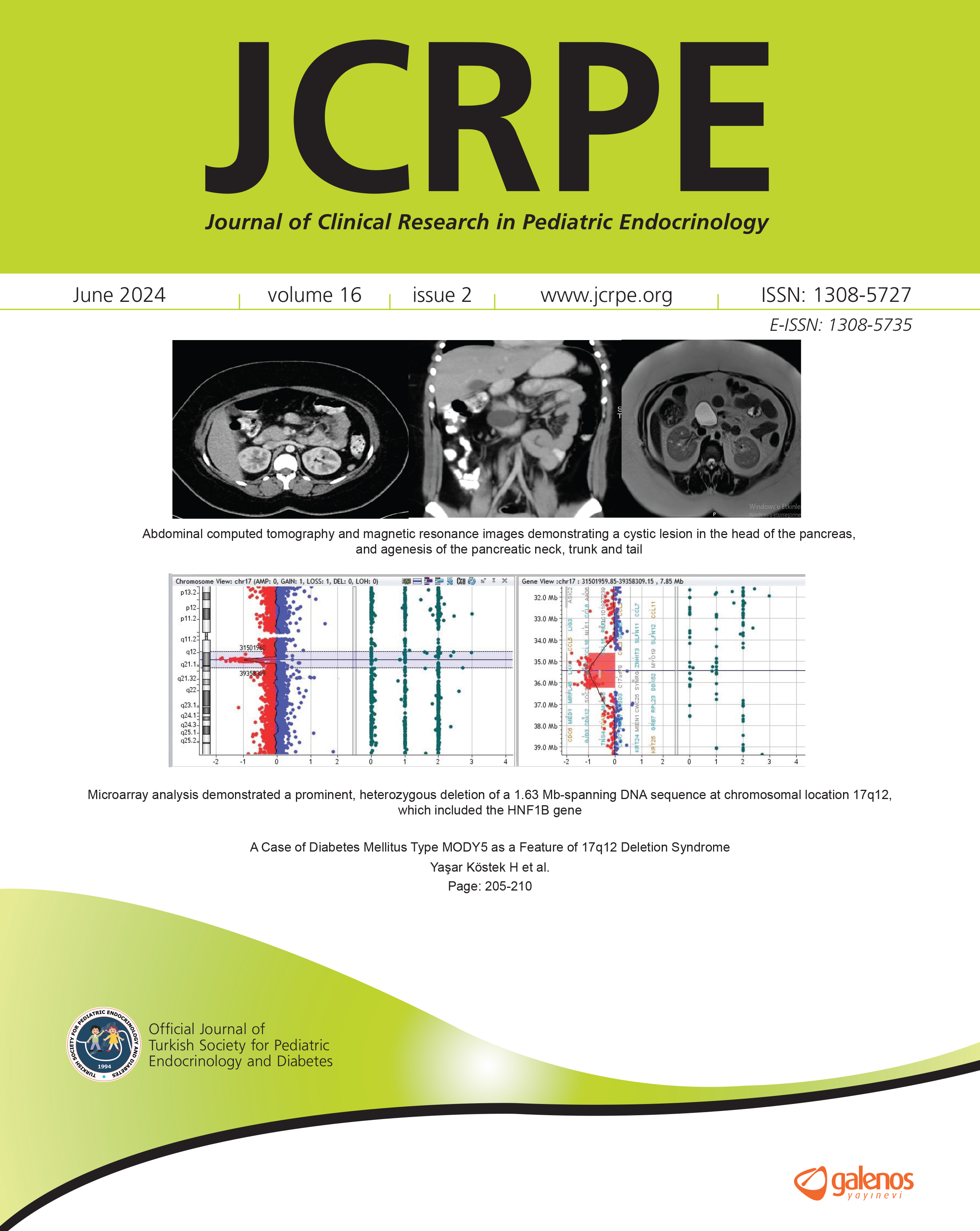Vitamin D Deficiency Rickets Mimicking Pseudohypoparathyroidism
Leyla Akın1, Selim Kurtoğlu2, Aysel Yıldız2, Mustafa Ali Akın2, Mustafa Kendirici21Erciyes University Faculty of Medicine, Department of Pediatric Endocrinology, Kayseri, Turkey2Department Of Pediatrics, Erciyes University Faculty Of Medicine, Kayseri, Turkey
Vitamin D deficiency rickets (VDDR) is a disorder biochemically characterized by elevated serum alkaline phosphatase (ALP) activity, normal or decreased serum calcium (Ca) and inorganic phosphate concentrations, secondary hyperparathyroidism and decreased serum 25-hydroxyvitamin D (25(OH)D) levels. In stage 1 VDDR, urinary amino acid and phosphate excretion are normal with minimal or no findings of rickets on radiographs. Pseudohypoparathyroidism (PHP) is an inherited disorder characterized by end-organ resistance to parathormone (PTH). VDDR occasionally resembles PHP type 2 in clinical presentation and biochemical features, creating difficulties in the differential diagnosis of these two entities. Here we report an infant diagnosed with VDDR. In addition to inadequate vitamin D intake, usage of antiepileptic drugs (AED) may have led to the worsening of the vitamin D deficiency. The patient presented with a history of febrile convulsions, for which he received phenobarbital treatment. The initial findings of hypocalcemia, hyperphosphatemia and normal tubular reabsorption of phosphate, mimicking PHP 2, responded well to vitamin D and oral Ca treatment with normalization of serum Ca, phosphorus (P), ALP and PTH levels.
Keywords: Vitamin D deficiency rickets,Pseudohypoparathyroidism,antiepileptic drugsManuscript Language: English



























